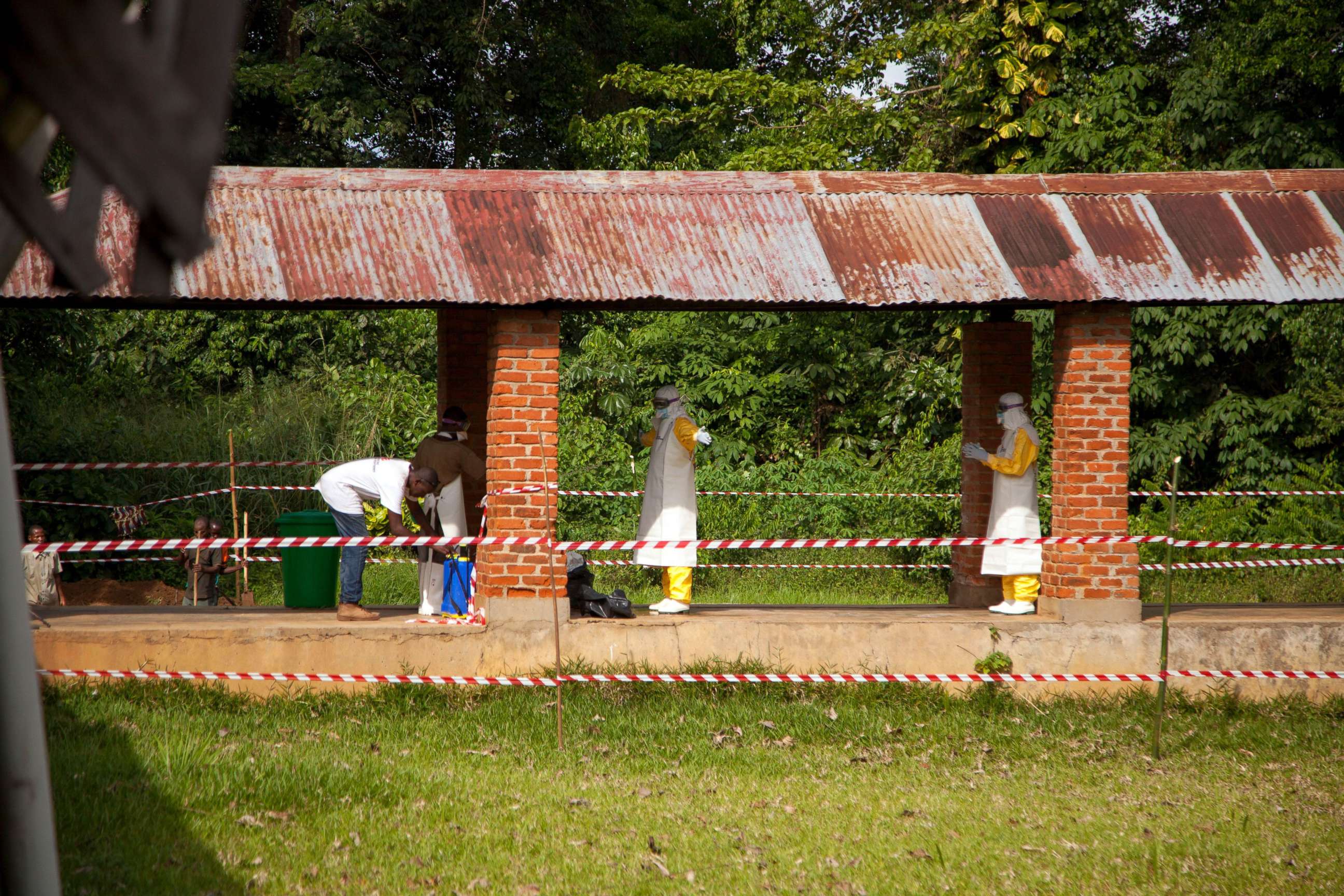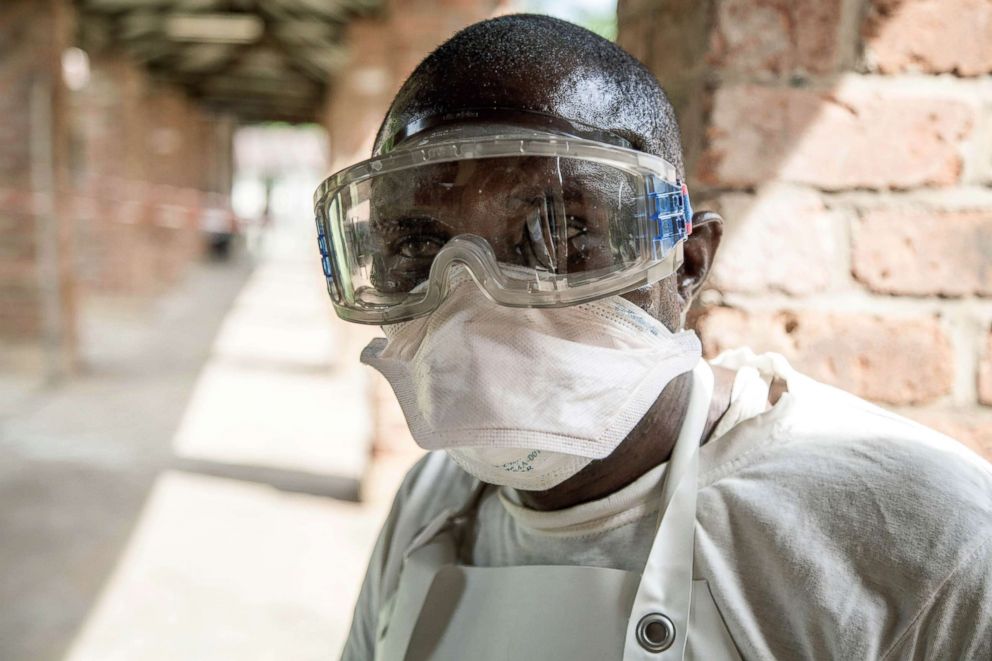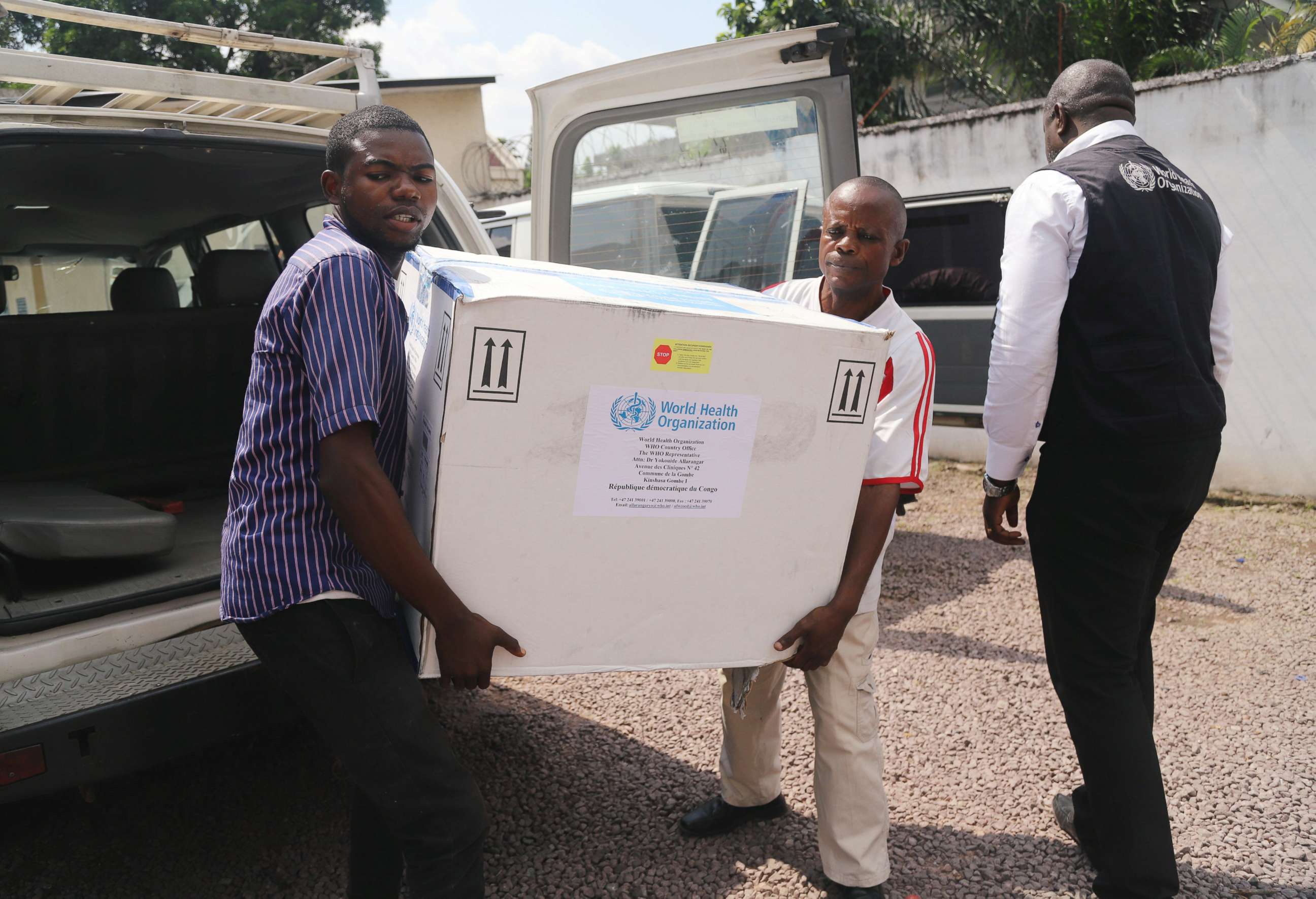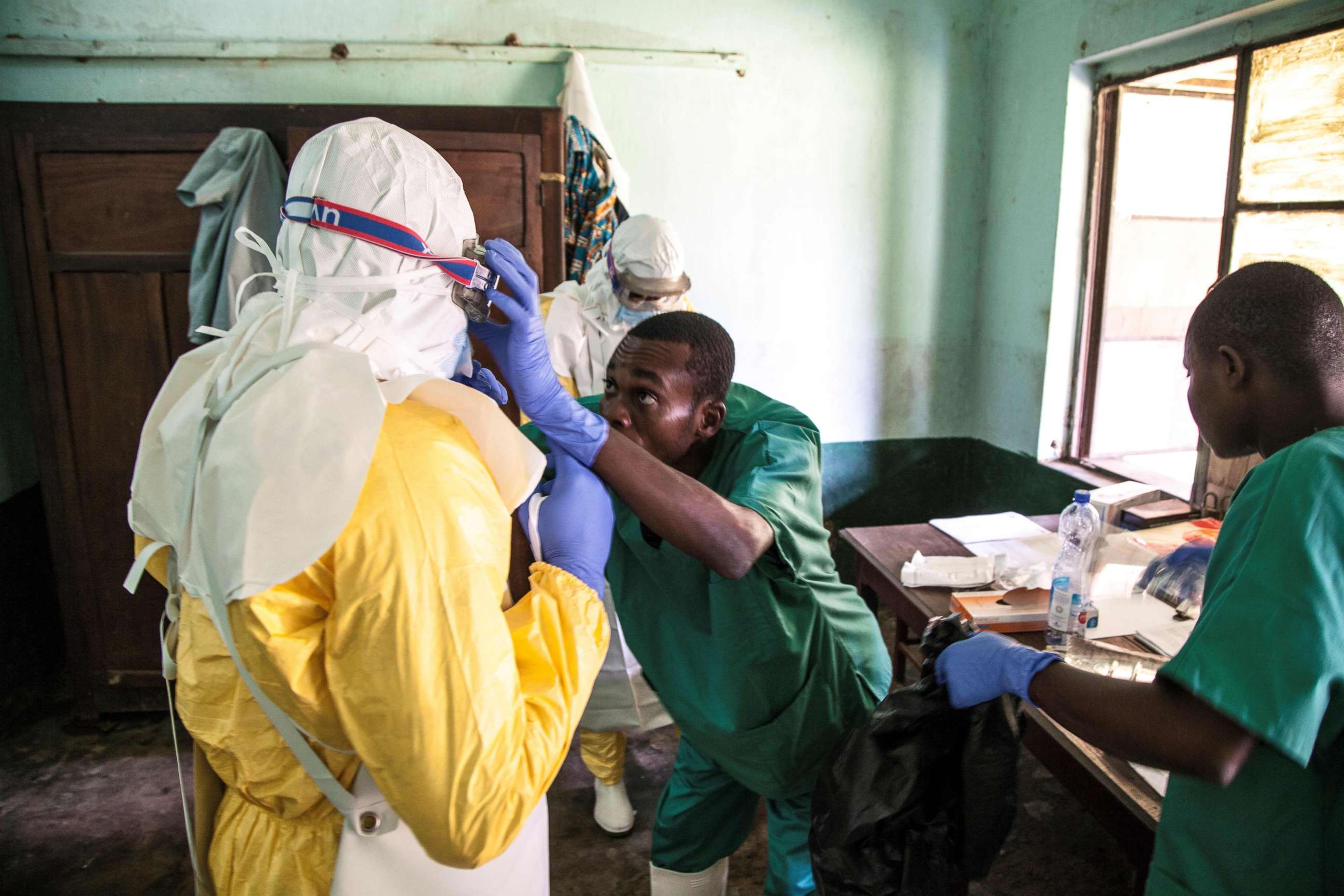Spread of Ebola to large city in Democratic Republic of Congo a 'very concerning' turn, health officials say
Congolese health officials warned the outbreak has now entered a "new phase"
The current Ebola outbreak in the Democratic Republic of Congo has spread from rural areas to a city of nearly 1.2 million people, the country's health ministry said Wednesday.
Situated along the Congo River, Mbandaka is a densely populated transit hub at the crossroads of the northwestern Equateur province, the health ministry said, raising fears that the Ebola virus will be easily passed on. Ebola spreads through direct contact with bodily fluids of infected people.
Downstream from Mbandaka is the country's capital, Kinshasa, which is home to roughly 10 million people. Just across the river from Kinshasa is Brazzaville, the capital of the neighboring Republic of the Congo.
"The arrival of Ebola in an urban area is very concerning and WHO and partners are working together to rapidly scale up the search for all contacts of the confirmed case in the Mbandaka area," said Matshidiso Moeti, the World Health Organization's regional director for Africa.

A new suspected case of Ebola was reported Tuesday in Wangata, one of the three health zones of Mbandaka, the capital of Equateur province. Laboratory tests on two samples from Wangata confirmed one specimen as positive for Ebola, while the other was negative.
By Thursday night, there was one confirmed case of Ebola and three suspected cases in Wangata. One of the individuals with a suspected case died, the country's heath ministry said.
It's the first time in the region's ongoing outbreak that a case has been detected in an urban health zone, with all other cases reported in remote, rural areas of Equateur province. And until now, all the confirmed cases of Ebola were in Bikoro health zone, some 90 miles south of Mbandaka.
"We are entering a new phase of the Ebola outbreak that is now affecting three health zones, including an urban health zone," the Democratic Republic of Congo's Minister of Health Oly Ilunga Kalenga said in a statement in French late Wednesday. "Since the announcement of the alert in Mbandaka, our epidemiologists are working in the field with community relays to identify people who have been in contact with suspected cases."
As of Thursday night, a total of 45 cases of hemorrhagic fever had been recorded in the Democratic Republic of Congo since the outbreak was announced on May 8. That number includes 14 confirmed cases of Ebola, 21 probable cases and 10 suspected cases. Health care workers have been among those infected, according to the country's health ministry.
There have been 25 deaths among these cases, including one person who died from a confirmed case of Ebola.
There are several types of hemorrhagic fever in the Democratic Republic of Congo, the health ministry noted; thus, not all suspected cases are necessarily Ebola.

It's the Central African nation's ninth Ebola outbreak since 1976 when scientists first identified the deadly virus.
The health ministry said it had received 5,400 doses of Ebola vaccine Wednesday morning. Thousands more were expected to arrive in the coming days.
The World Health Organization (WHO), which is working with the Democratic Republic of Congo's health ministry and its partners, announced Thursday that it has deployed 30 experts to conduct surveillance in Mbandaka, following news of the confirmed case there.
Doctors Without Borders, or MSF as its often called by its French acronym, said it too is stepping up its response to stop the spread of the current Ebola outbreak in the Democratic Republic of Congo.
"With the new case confirmed in Mbandaka, the scenario has changed, and it has become more serious and worrying, since the disease is now affecting an urban area," said Henry Gray, MSF emergency coordinator in Mbandaka. "It is paramount to trace the suspect case in order to have a clearer view on how it reached the city."

The International Federation of Red Cross and Red Crescent Societies, which is also assisting the country amid the current outbreak, said communities across Equateur province must be alerted of the rising risk of Ebola to stop the virus from spreading further.
"Local volunteers and health workers are the community’s alarm system," said Ben Adinoyi, who heads the International Federation of Red Cross and Red Crescent Societies’ health unit for Africa. “They are our eyes and ears on the ground. They are critical to the early identification and containment of new cases."
"They need to be activated across the province and even beyond," he added. "If we don’t, then the virus may spread too far and too quickly."

The latest Ebola case in the Democratic Republic of Congo comes amid an outbreak of violence that has spread rapidly in the country's restive Kasai region. The violence was sparked by existing tensions between customary chiefs in Kasai-Central Province and the government in 2016, but the widening conflict has since pulled in militias, armed groups and security forces across an area the size of Germany.
The violence has forced families to flee their homes. About 3.8 million people in the Kasai region, including 2.3 million children, are in need of humanitarian assistance, according to the United Nations.




